17 start with L start with L
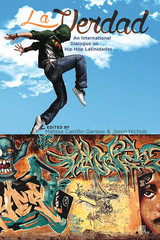
A truly international effort, La Verdad: An International Dialogue on Hip Hop Latinidades brings together exciting new work about Latino/a hip hop across more than a dozen countries, from scholars and practitioners in the United States and in Latin America, highlighting in new ways the participation of women, indigenous peoples, and Afro-descendants in a reimagined global, hip hop nation. From graffitera crews in Costa Rica and Nicaragua to Mexican hip hop in New York, from Aymara rap in Bolivia to Chicano rap in Taiwan, this volume explodes stereotypes of who and how hip hop is consumed, lived, and performed. Examining hip hop movements in Spanish, English, Portuguese, Aymara, and Creole, La Verdad demonstrates that Latino hip hop is a multilingual expression of gender, indigeneity, activism, and social justice.

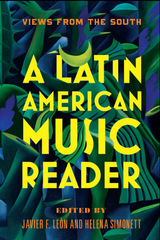
Contributors include Marina Alonso Bolaños, Gonzalo Camacho Díaz, José Jorge de Carvalho, Claudio F. Díaz, Rodrigo Cantos Savelli Gomes, Juan Pablo González, Rubén López-Cano, Angela Lühning, Jorge Martínez Ulloa, Maria Ignêz Cruz Mello, Julio Mendívil, Carlos Miñana Blasco, Raúl R. Romero, Iñigo Sánchez Fuarros, Carlos Sandroni, Carolina Santamaría-Delgado, Rodrigo Torres Alvarado, and Alejandro Vera.
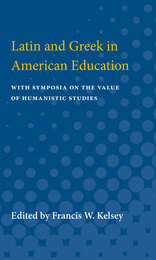
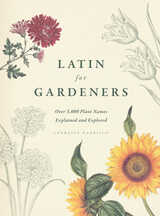
Since Latin became the standard language for plant naming in the eighteenth century, it has been intrinsically linked with botany. And while mastery of the classical language may not be a prerequisite for tending perennials, all gardeners stand to benefit from learning a bit of Latin and its conventions in the field. Without it, they might buy a Hellebores foetidus and be unprepared for its fetid smell, or a Potentilla reptans with the expectation that it will stand straight as a sentinel rather than creep along the ground.
An essential addition to the gardener’s library, this colorful, fully illustrated book details the history of naming plants, provides an overview of Latin naming conventions, and offers guidelines for pronunciation. Readers will learn to identify Latin terms that indicate the provenance of a given plant and provide clues to its color, shape, fragrance, taste, behavior, functions, and more.
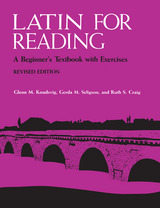
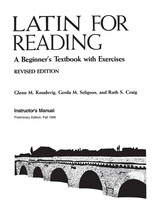
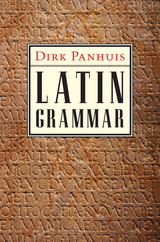
Back Cover
Through clear structuring of language phenomena, Panhuis provides a reference that integrates traditional linguistic knowledge with linguistic innovation and didactic clarity. This concise reference, ideal for students and instructors of Latin in high schools and colleges, will supplant the out-dated grammars of Allen & Greenough and Hale & Buck.
Dirk Panhuis graduated in classical philology at the State University of Ghent, Belgium, in 1963 and obtained his PhD in linguistics at the University of Michigan, Ann Arbor, in 1981. He has been assistant and academic secretary of the Institut Supérieur Pédagogique in Kananga (Democratic Republic of Congo) and a teaching assistant at the University of Michigan. He taught classical languages in high schools of the Flemish Community in and around Louvain (Belgium) until his retirement in 2002.
"Panhuis brings a very welcome linguistic orientation to the study of Latin, an approach not found in the older traditional grammars currently used at the college level. Among the features likely to prove most helpful for students is the presentation of information in clear and easily readable charts and grids, and the explanations accompanying the English translations, allowing students to see clearly how to render a Latin structure into English both literally and idiomatically."
Back Cover continued
—Deborah Ross, Department of Classical Studies, University of Michigan
"This innovative grammar incorporates current viewpoints of syntax and semantics, making it a unique tool, especially for the study of sentence structure."—Philip Baldi, Professor of Linguistics and Classics, Pennsylvania State University
"In his Latin Grammar, Panhuis artfully integrates traditional description and modern analysis. It will provide intermediate and advancing Latin students mature help in understanding Latin syntax and offers material on the dynamics of text which is unique for an introductory reference tool. Not to be overlooked is its value as a resource to those who teach Latin."
—Charles Elerick, Professor of Languages and Linguistics, The University of Texas at El Paso
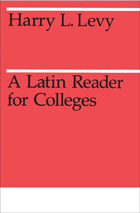
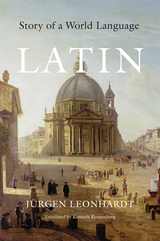
The mother tongue of the Roman Empire and the lingua franca of the West for centuries after Rome’s fall, Latin survives today primarily in classrooms and texts. Yet this “dead language” is unique in the influence it has exerted across centuries and continents. Jürgen Leonhardt has written a full history of Latin from antiquity to the present, uncovering how this once parochial dialect developed into a vehicle of global communication that remained vital long after its spoken form was supplanted by modern languages.
Latin originated in the Italian region of Latium, around Rome, and became widespread as that city’s imperial might grew. By the first century BCE, Latin was already transitioning from a living vernacular, as writers and grammarians like Cicero and Varro fixed Latin’s status as a “classical” language with a codified rhetoric and rules. As Romance languages spun off from their Latin origins following the empire’s collapse—shedding cases and genders along the way—the ancient language retained its currency as a world language in ways that anticipated English and Spanish, but it ceased to evolve.
Leonhardt charts the vicissitudes of Latin in the post-Roman world: its ninth-century revival under Charlemagne and its flourishing among Renaissance writers who, more than their medieval predecessors, were interested in questions of literary style and expression. Ultimately, the rise of historicism in the eighteenth century turned Latin from a practical tongue to an academic subject. Nevertheless, of all the traces left by the Romans, their language remains the most ubiquitous artifact of a once peerless empire.
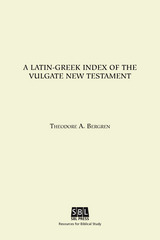
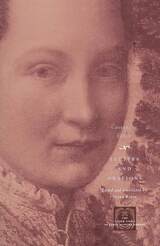
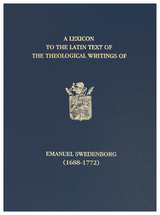
Beyond its use for scholars of Swedenborg, the Lexicon is also of great assistance to students and academics of history, philosophy, theology and science, and anyone who encounters texts written in Neo-Latin (the branch of Latin that was in use by learned writers and thinkers from the Renaissance period through to the Enlightenment and beyond). The Lexicon is beautifully and simply designed and easy to navigate. In addition to a preface by editor John Chadwick, this edition also features a new introduction by Jonathan S. Rose containing an important section on the morphology of Swedenborg’s Neo-Latin (as distinct from the morphology of classical Latin); an appreciation of the life of John Chadwick by John Elliott; an appendix with a detailed listing of the various Latin editions of Swedenborg’s theological works; and an appendix on Swedenborg’s use of the Latin Bible of Sebastian Schmidt.


The papers in this volume are based on a 2018 conference in the Department of the Classics at Harvard University in honor of Richard Tarrant, Pope Professor of the Latin Language and Literature, on the occasion of his retirement.
The breadth of authors, genres, periods, and topics addressed in The Lives of Latin Texts is testament to Richard Tarrant’s wide-ranging influence on the fields of Latin literary studies and textual criticism. Contributions on stylistic, dramatic, metapoetic, and philosophical issues in Latin literature (including authors from Virgil, Horace, and Seneca to Ovid, Terence, Statius, Caesar, and Martial) sit alongside contributions on the history of textual transmission and textual editing. Other chapters treat the musical reception of Latin literature. Taken together, the volume reflects on the impact of Richard Tarrant’s scholarship by addressing the expressive scope and the long history of the Latin language.
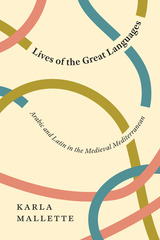
In this ambitious book, Karla Mallette studies the nature and behaviors of the medieval cosmopolitan languages of learning—classical Arabic and medieval Latin—as they crossed the Mediterranean. Through anecdotes of relationships among writers, compilers, translators, commentators, and copyists, Mallette tells a complex story about the transmission of knowledge in the period before the emergence of a national language system in the late Middle Ages and early modernity.
Mallette shows how the elite languages of learning and culture were only tenuously related to the languages of everyday life. These languages took years of study to master, marking the passage from intellectual childhood to maturity. In a coda to the book, Mallette speculates on the afterlife of cosmopolitan languages in the twenty-first century, the perils of monolingualism, and the ethics of language choice. The book offers insight for anyone interested in rethinking linguistic and literary tradition, the transmission of ideas, and cultural expression in an increasingly multilingual world.
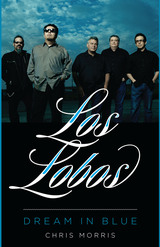
Los Lobos leaped into the national spotlight in 1987, when their cover of “La Bamba” became a No. 1 hit. But what looked like an overnight achievement to the band’s new fans was actually a way station in a long musical journey that began in East Los Angeles in 1973 and is still going strong. Across four decades, Los Lobos (Cesar Rosas, Conrad Lozano, David Hidalgo, Louie Pérez, and Steve Berlin) have ranged through virtually the entire breadth of American vernacular music, from rockabilly to primal punk rock, R&B to country and folk, Mexican son jarocho to Tex-Mex conjunto and Latin American cumbia. Their sui generis sound has sold millions of albums and won acclaim from fans and critics alike, including three Grammy Awards.
Los Lobos, the first book on this unique band, traces the entire arc of the band’s career. Music journalist Chris Morris draws on new interviews with Los Lobos members and their principal collaborators, as well as his own reporting since the early 1980s, to recount the evolution of Los Lobos’s music. He describes the creation of every album, lingering over highlights such as How Will the Wolf Survive?, La Pistola y El Corazon, and Kiko, while following the band’s trajectory from playing Mexican folk music at weddings and dances in East L.A. to international stardom and major-label success, as well as their independent work in the new millennium. Giving one of the longest-lived and most-honored American rock bands its due, Los Lobos celebrates the expansive reach and creative experimentalism that few other bands can match.
READERS
Browse our collection.
PUBLISHERS
See BiblioVault's publisher services.
STUDENT SERVICES
Files for college accessibility offices.
UChicago Accessibility Resources
home | accessibility | search | about | contact us
BiblioVault ® 2001 - 2024
The University of Chicago Press









